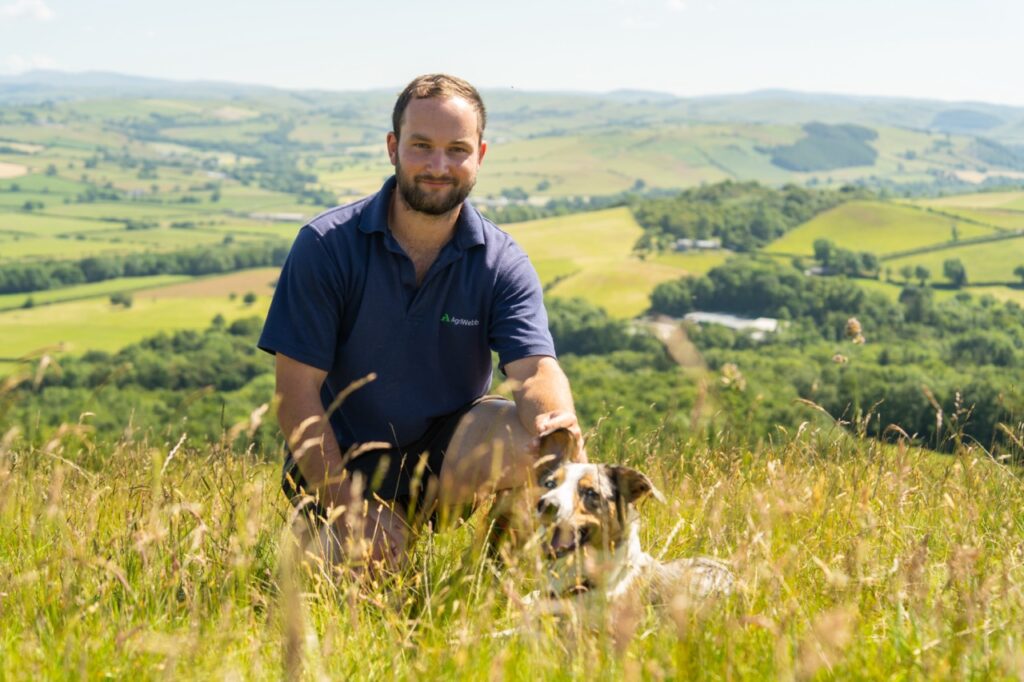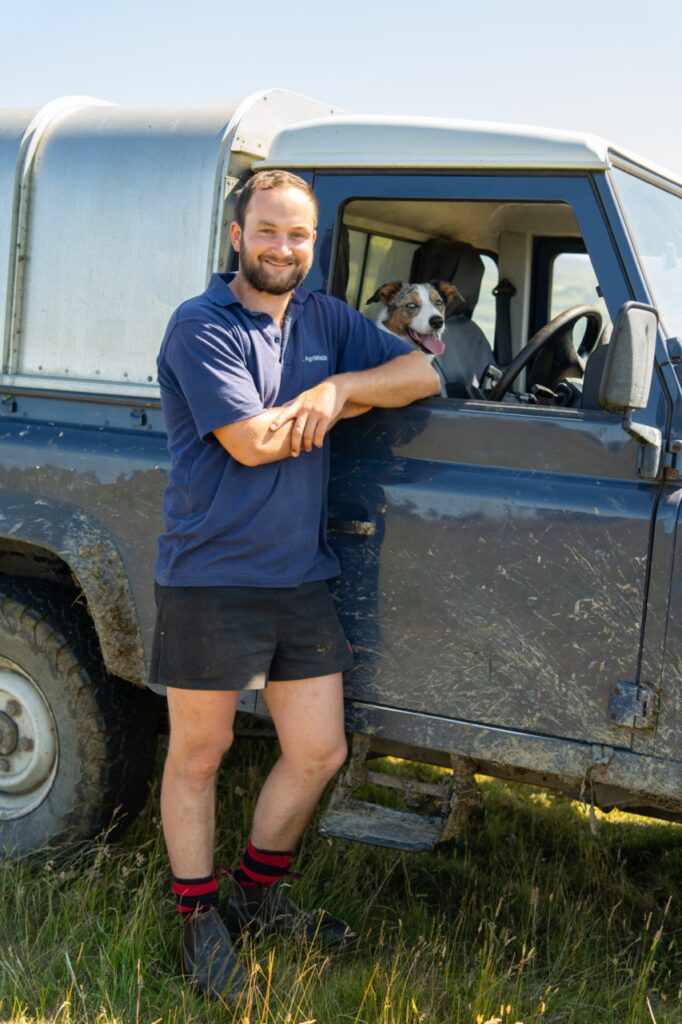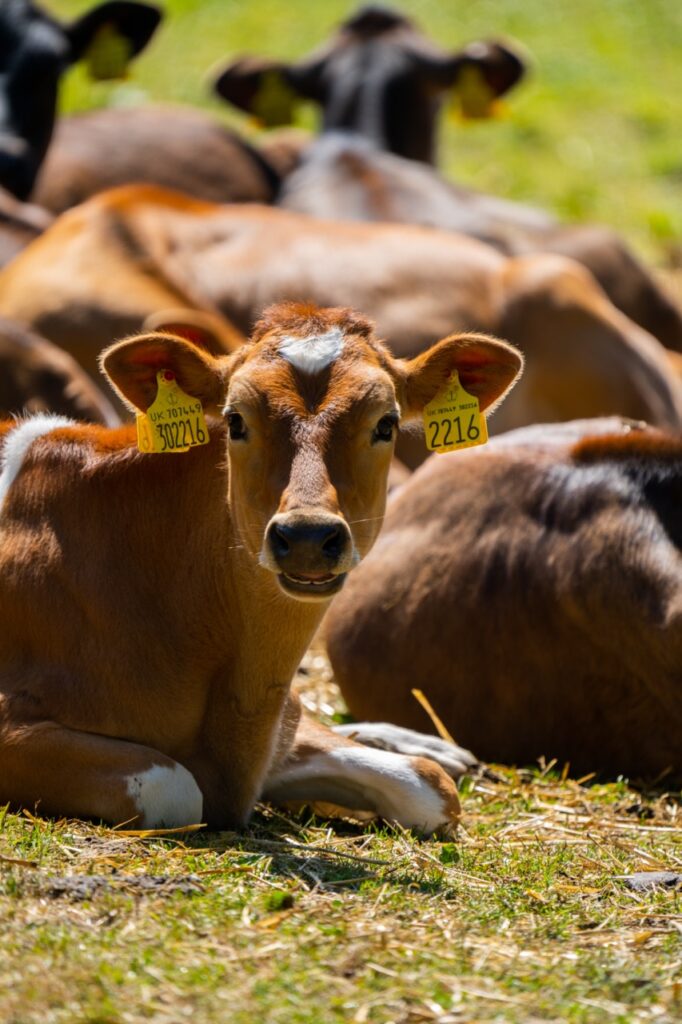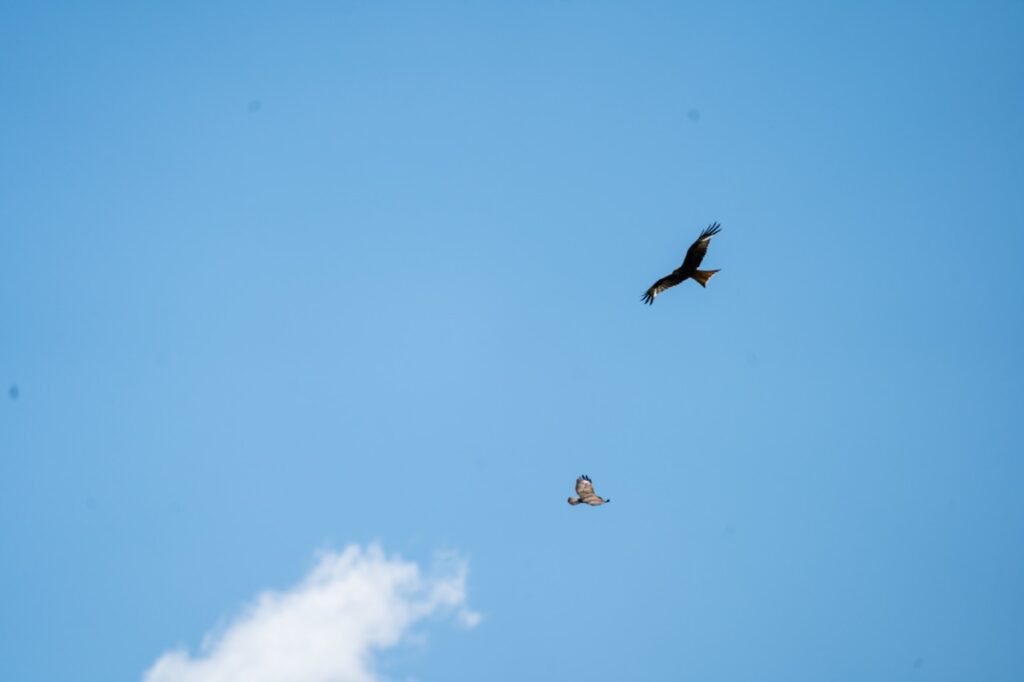
Peter Loxdale runs Castle Hill Farm near Aberystwyth with his father Patrick. In 2008, the beef and sheep operation was converted to organic and, since then, it has moved to an increasingly regenerative approach.
As part of this, they have installed a muck store with the help of a government grant in order to make better use of their farmyard manure. Previously, it was stored in heaps on the fields but over winter rain had leached a lot of the goodness out and it took a long time to break down. The concrete structure shelters the manure and allows it to be turned every fortnight. This system ensures expensive bedding straw is used more efficiently as it’s well composted with the muck and returns organic matter to the soil.
Patrick said: “Within 12 weeks it has composted enough to be spread on the fields and the composted muck absorbed much more rapidly. That must mean it’s a good product and that the soil is healthy because worms are coming up and taking it. The quick absorption allows us to use it in a similar fashion to artificial fertiliser by applying little and often between silage cuts.”
Another big change has been towards intensive rotational grazing of diverse swards whereby high densities of stock are moved round more regularly, giving the grass longer recovery periods. This method has seen huge increases in yields, which is important for an organic system where artificial fertilizers are not permitted. The rise in forage production has allowed an increase in stocking densities, which this should in return see greater revenues. In a typical rotation sheep are moved every two days.
Peter said: “If you gave them six days on one area, they’ll have eaten all the best quality grass in the first two and then spend four picking through the rest. By dividing this same area, for example, into three sections they eat better quality grass more regularly and don’t churn it up by walking from one end to another. On the second day they have to pick through the rest and then they’re moved on. We also switched to deferred grazing rather than forage crops in winter which has reduced costs and means the sheep come in the shed before lambing cleaner.”
Peter has easy to put out modern fencing systems, which enable him to put out a 220m fence line in five minutes, and Kiwitech drag troughs fed by well systems and a solar pump so he can move water to the sheep rather than the other way round. He said: “Where we want to take this farm in the future is driven by improving soil and environment because by doing that we also improve the farm’s self-sufficiency and profitability which is increasingly important with reduction in subsidies and schemes and global factors beyond our control.”


